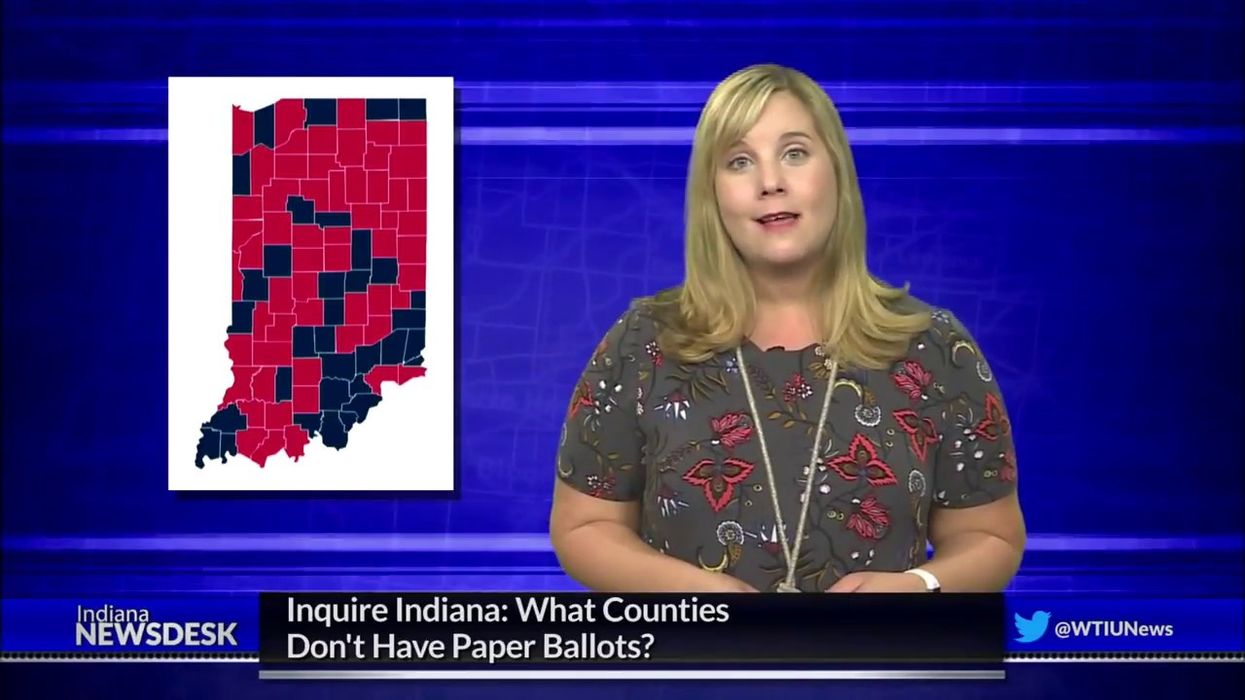Indiana is not moving nearly assertively enough to upgrade its voting machines so they're less vulnerable to hackers, a nonprofit alleges in a federal lawsuit pressing the state to spend millions more before the presidential election.
At issue is the timetable for eliminating the direct recording electronic, or DRE, voting machines that are in use in 58 of the state's 92 counties. The complaint filed Thursday by Indiana Vote by Mail, which advocates for any array of proposals to give Hoosiers easier access to the ballot box, wants to force the state to replace the paperless devices in the next year with machines that produce a voter-verified paper audit trail.
Indiana for now looks to be among just eight states using paperless balloting in 2020, when President Trump will be counting on its 11 electoral votes. The state last went for the Democratic candidate for president in 2008.
Indiana Secretary of State Connie Lawson announced plans this summer to retrofit 2,000 electronic machines before the primaries in May so they produce a paper record. But that's only 10 percent of the equipment at issue. That's because the state allocated just $6 million to the project. Lawson had sought $75 million for the project but was rebuffed in budget negotiations by the governor, fellow Republican Eric Holcomb.
The General Assembly enacted a law this year giving counties in the state until 2030 to stop using paperless voting machines at any of the 5,0000 polling places. The DRE machines are widely understood to be more vulnerable to attack than their paper-trail siblings. But Lawson told the Indianapolis Star it is already "virtually impossible"for someone to hack into Indiana elections, because voting machines and tabulation devices aren't connected to the Internet.
Over the summer, volunteer hackers successfully gained access to every voting system they targeted as a test of the nation's election security.




















Trump & Hegseth gave Mark Kelly a huge 2028 gift